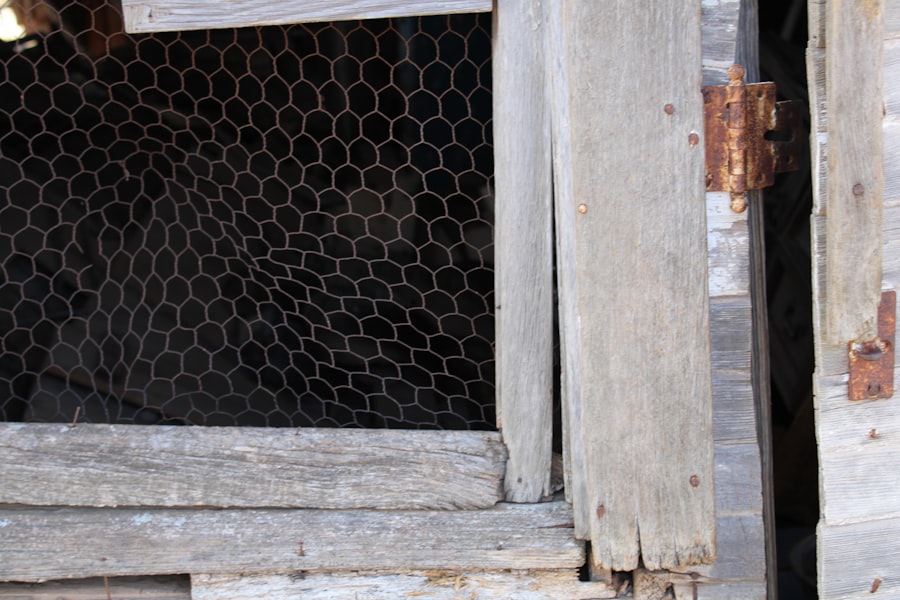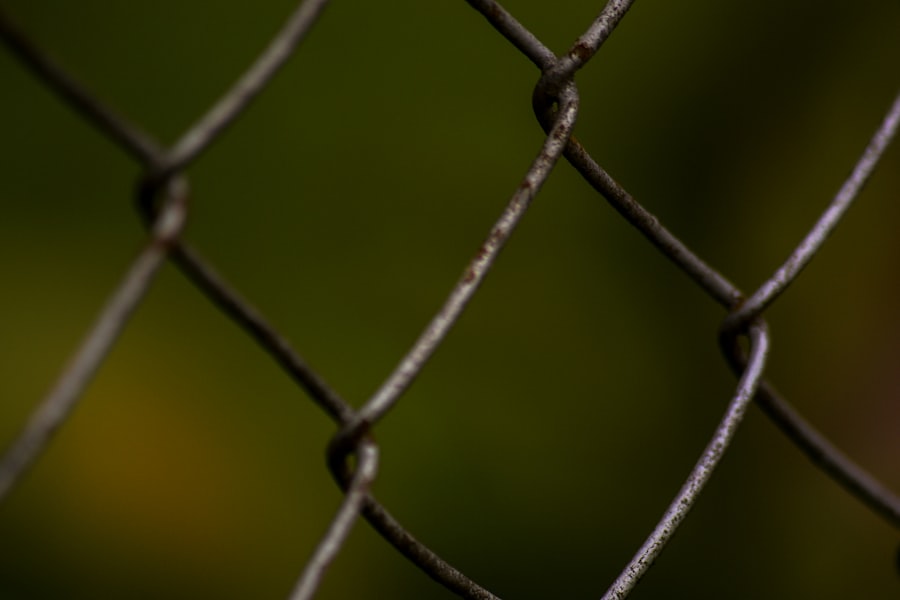Chickens exhibit natural curiosity and social behavior, frequently exploring their environment and engaging with other members of their flock. They are opportunistic feeders, constantly searching for food sources. Understanding these behavioral traits is essential for effectively deterring chickens from undesired areas.
By recognizing their innate tendencies, it becomes easier to implement strategies that discourage them from accessing certain spaces or causing damage. Chickens are also territorial animals, establishing a hierarchical structure known as a pecking order within their flock. This territorial behavior can result in aggression towards other animals or humans if they perceive a threat or invasion of their space.
When implementing deterrents, it is crucial to consider this aspect of their behavior to avoid provoking them or causing unnecessary stress. A comprehensive understanding of chicken behavior enables the development of humane and effective methods for keeping them away from specific areas without causing harm or distress.
Table of Contents
- 1 Implementing Physical Barriers
- 2 Using Natural Deterrents
- 3 Keeping Food Sources Secure
- 4 Creating Distractions
- 5 Utilizing Repellents
- 6 Seeking Professional Help
- 7 FAQs
- 7.1 What are some natural ways to keep chickens away from my house?
- 7.2 Are there any commercial products available to keep chickens away?
- 7.3 Why is it important to keep chickens away from my house?
- 7.4 Can I use food to attract chickens away from my house?
- 7.5 Are there any legal restrictions on keeping chickens away from my house?
Key Takeaways
- Chickens are naturally curious and will explore their surroundings, making them susceptible to pest attacks.
- Physical barriers such as fences and netting can effectively keep pests away from chicken coops and feed.
- Natural deterrents like planting strong-smelling herbs and flowers can help repel pests from the chicken coop area.
- Keeping food sources secure in sealed containers can prevent pests from being attracted to the coop.
- Creating distractions like hanging shiny objects or providing dust baths can divert pests’ attention away from the chickens.
Implementing Physical Barriers
Fences and Netting: Effective Barriers
One of the most effective ways to deter chickens from accessing certain areas is by implementing physical barriers. This can include installing fences, netting, or other structures that prevent them from entering gardens, flower beds, or other sensitive areas. Fences should be tall enough to prevent chickens from flying over them and sturdy enough to withstand their attempts to dig or scratch underneath.
Protecting Plants and Crops
Netting can be used to cover plants or crops, preventing chickens from pecking at them and causing damage. This is a simple yet effective way to safeguard your plants and crops from chicken damage.
Motion-Activated Sprinklers: A Startling Deterrent
Another physical barrier that can be effective in deterring chickens is the use of motion-activated sprinklers. These devices can startle chickens when they approach a certain area, discouraging them from returning.
Designated Areas for Chickens
Additionally, creating designated areas for chickens to roam freely can help contain them and prevent them from accessing areas where they may cause damage. By implementing physical barriers, it becomes possible to protect sensitive areas from chicken intrusion while still allowing them to roam and explore in designated spaces.
Using Natural Deterrents

In addition to physical barriers, natural deterrents can also be effective in keeping chickens away from unwanted areas. One common natural deterrent is the use of predator decoys, such as fake owls or hawks. These decoys can create the illusion of a threat, causing chickens to avoid the area out of fear of potential predators.
Another natural deterrent is the use of strong-smelling plants or herbs, such as lavender or mint, which can repel chickens due to their strong scent. Another natural deterrent that can be effective is the use of reflective surfaces, such as aluminum foil strips or shiny objects. These reflective surfaces can create a visual disturbance for chickens, making them uncomfortable and deterring them from approaching certain areas.
Additionally, the use of natural barriers, such as thorny bushes or prickly plants, can create physical obstacles that discourage chickens from accessing sensitive areas. By using natural deterrents, it becomes possible to keep chickens away from specific areas without causing harm or distress.
Keeping Food Sources Secure
Chickens are constantly on the lookout for food sources, making it essential to keep potential food items secure to deter them from accessing certain areas. This includes securing garbage cans, compost bins, and pet food containers to prevent chickens from scavenging for food. It’s also important to keep bird feeders out of reach, as spilled seeds can attract chickens and other unwanted wildlife.
In addition to securing food sources, it’s important to keep gardens and crops protected from chicken foraging. This can be achieved by using raised garden beds or containers to grow plants, making it more difficult for chickens to access them. Additionally, covering crops with netting or row covers can prevent chickens from pecking at them and causing damage.
By keeping food sources secure, it becomes possible to discourage chickens from accessing certain areas in search of food.
Creating Distractions
Another effective strategy for deterring chickens is by creating distractions that redirect their attention away from sensitive areas. This can include providing alternative food sources in designated areas where chickens are allowed to roam freely. By offering treats or scratch grains in specific locations, chickens can be encouraged to stay away from gardens or other sensitive areas where they may cause damage.
Another way to create distractions is by providing enrichment activities for chickens, such as hanging treats or toys that encourage pecking and exploration. By keeping chickens engaged and entertained in designated areas, they are less likely to seek out other areas where they may cause damage. Additionally, providing ample space for chickens to roam and explore can help prevent boredom and reduce the likelihood of them venturing into unwanted areas.
By creating distractions, it becomes possible to keep chickens occupied and deter them from accessing sensitive areas.
Utilizing Repellents

Commercial Repellents
There are various commercial repellents available on the market that are specifically designed to deter chickens and other wildlife. These repellents often contain natural ingredients with strong scents or tastes that are unpleasant to chickens, discouraging them from approaching treated areas.
Homemade Solutions
Another option for repellents is the use of homemade solutions, such as vinegar or hot pepper spray, which can be applied to surfaces or plants to deter chickens from pecking at them.
Effective Application
It’s important to regularly reapply repellents, especially after rain or watering, to ensure their effectiveness. By utilizing repellents, it becomes possible to create a deterrent barrier that discourages chickens from accessing specific areas without causing harm.
Seeking Professional Help
If all else fails, seeking professional help may be necessary in effectively deterring chickens from unwanted areas. Professional wildlife control services can provide expert advice and assistance in developing customized strategies for deterring chickens based on the specific needs of the property. They may also offer humane trapping and relocation services for persistent chicken intrusions.
Additionally, consulting with local agricultural extension offices or poultry experts can provide valuable insights and recommendations for managing chicken-related issues. By seeking professional help, property owners can access specialized knowledge and resources to effectively address chicken intrusions and minimize potential damage. In conclusion, understanding the behavior of chickens is essential in developing effective strategies for deterring them from unwanted areas.
By implementing physical barriers, natural deterrents, and other proactive measures, it becomes possible to protect sensitive areas from chicken intrusion while still allowing them to roam and explore in designated spaces. Keeping food sources secure, creating distractions, utilizing repellents, and seeking professional help are all valuable tools in effectively managing chicken-related issues on residential or agricultural properties. With careful planning and consideration of the natural tendencies of chickens, property owners can successfully deter them from causing damage while promoting coexistence in shared environments.
If you’re looking for more information on keeping chickens, you might be interested in this article on chicken coop run plans. It provides helpful tips and ideas for creating a safe and secure space for your chickens to roam while keeping them away from your house.
FAQs
What are some natural ways to keep chickens away from my house?
Some natural ways to keep chickens away from your house include using strong-smelling herbs and plants, such as lavender, mint, or marigolds, as well as using physical barriers like fences or netting.
Are there any commercial products available to keep chickens away?
Yes, there are commercial products available, such as chicken repellent sprays or electronic deterrent devices, that can help keep chickens away from your house.
Why is it important to keep chickens away from my house?
Keeping chickens away from your house is important to prevent damage to your property, such as scratching and pecking at the exterior of your house, as well as to maintain cleanliness and hygiene around your home.
Can I use food to attract chickens away from my house?
While it may be tempting to use food to attract chickens away from your house, this can actually encourage them to stay and potentially cause more problems. It’s best to focus on deterrent methods rather than attracting them with food.
Are there any legal restrictions on keeping chickens away from my house?
There may be local ordinances or regulations regarding the keeping of chickens and other poultry in residential areas, so it’s important to check with your local authorities before implementing any methods to keep chickens away from your house.
Meet Walter, the feathered-friend fanatic of Florida! Nestled in the sunshine state, Walter struts through life with his feathered companions, clucking his way to happiness. With a coop that’s fancier than a five-star hotel, he’s the Don Juan of the chicken world. When he’s not teaching his hens to do the cha-cha, you’ll find him in a heated debate with his prized rooster, Sir Clucks-a-Lot. Walter’s poultry passion is no yolk; he’s the sunny-side-up guy you never knew you needed in your flock of friends!







